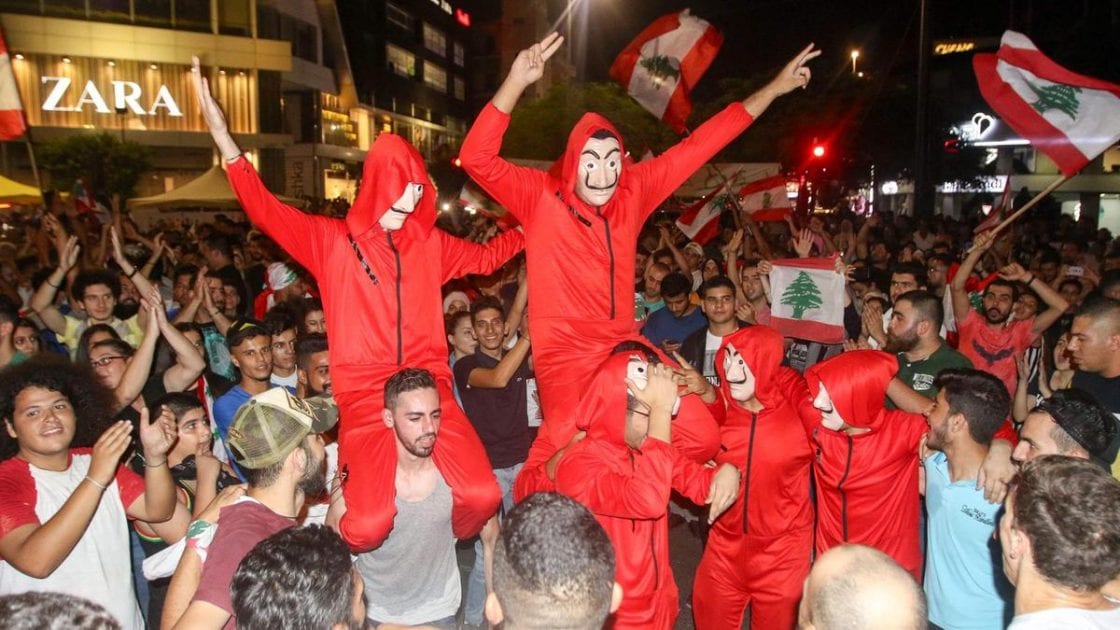La Casa de Papel (Money Heist) is one of Netflix’s most-watched foreign language series. The show recently aired its fourth season followed by a Netflix’s Special, an hour-long documentary about the series’ influence worldwide – and Lebanon has made it to the show!
The Lebanese revolution was featured in the documentary called Money Heist: The Phenomenon which talked about how the show has impacted the world.
The series has undoubtedly influenced the Lebanese, some of whom proudly wore the now-iconic Salvador Dali masks and red jumpsuits to the protests as a statement of resistance and rebellion against the government.
Oprah Magazine wrote about the meaning behind the show’s costume, saying that it’s not merely a way for the characters to hide their true identities during a heist:
“It actually serves as a physical symbol of the show’s theme, which is about “the resistance, indignation, and skepticism” towards “the system,” as the Professor says in episode 1 of season 3.”
It’s safe to say resistance and skepticism towards the system ring bells with the Lebanese revolutionaries.
As always, many Lebanese viewers took to the internet to express how they felt about finding out their revolution was featured on La Casa de Papel.
Here are some reactions:
#1 “It’s official boys, we’re famous.” – Reddit user, Berytus-NutrixLegum
#2 “LOOK MOM! THAT’S OUR FLAG!!’ Reddit user, AmadFish_123
#3 “The most amazing thing in the world I have ever watched.” – Mohammad Masri
#4 “I watched it when I finished part 4! Pretty amazing.” – Nicole Maamary
#5 “What a season. What a great ending.” – Adel Bazzi
#6 “They mentioned the Lebanese revolution. I’m so happy”
#7 “So proud of my comrades [who] went viral during the Lebanese revolution.” – Achkar Zak
Surely, as more and more people end the season and watch the documentary, there will be more and more comments gushing about Lebanon’s pride being represented by the phenomenal show and that the Lebanese Revolution back under the world spotlight.
After all, the show is a phenomenal series watched by some 40 million people worldwide.
















